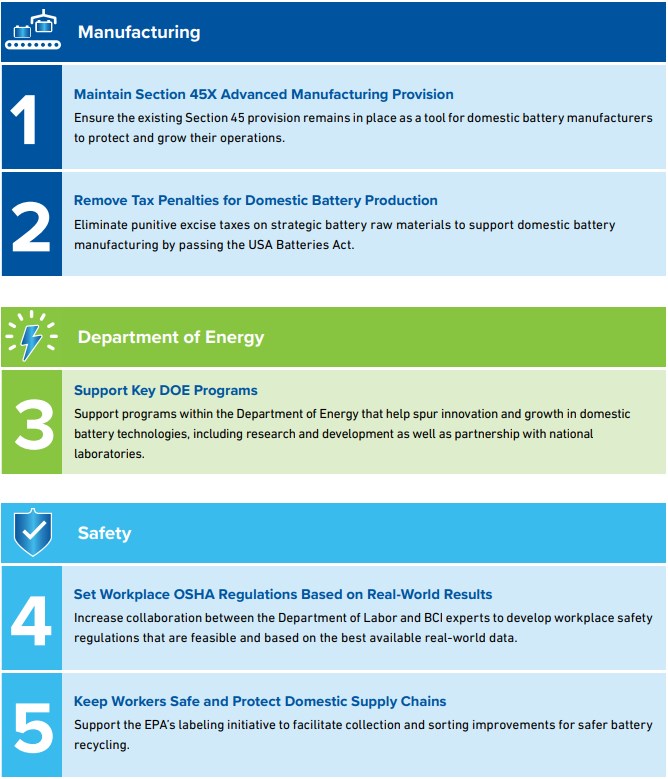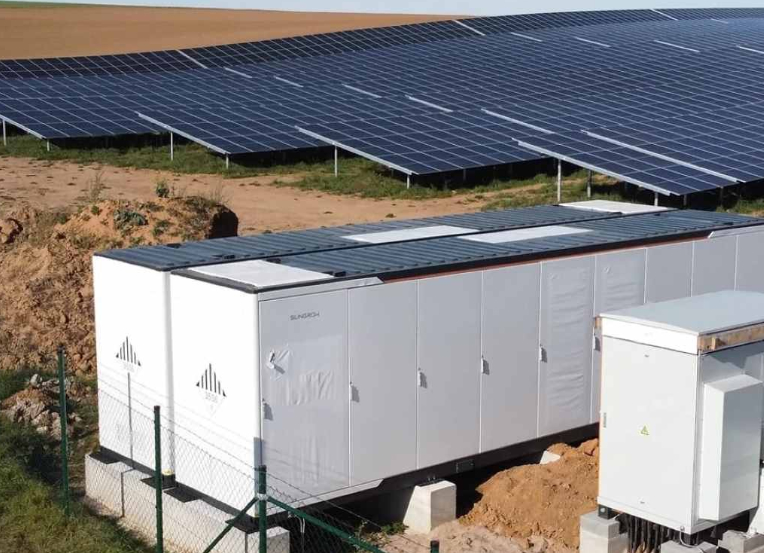Battery Council International calls for US Congressional action to protect domestic battery manufacturing

Battery Council International (BCI), a major US energy storage industry association, has issued policy recommendations to the 119th Congress, highlighting concerns about domestic manufacturing competitiveness and supply chain security.
In a February 2025 policy brief, BCI President Roger Miksad emphasized that batteries are “a cornerstone of the modern American economy,” supporting $8.1 trillion in economic output and approximately 48 million US jobs across various sectors. The industry has been active for more than 100 years and has over 160 member firms worldwide and in the US.
The policy recommendations come at a time of flux within the US government, with the White House and Trump administration placing very high levels of scrutiny on all government spending.
In addition, the US Energy Information Administration reports that grid-connected battery storage capacity doubled in 2024, which the US domestic manufacturing base can support.
BCI’s policy recommendations to Congress
The organization outlined five key policy priorities across manufacturing, the Department of Energy, and safety:
Manufacturing support:
- BCI urged Congress to maintain the Section 45X Advanced Manufacturing Production Tax Credit, warning that its removal would disadvantage domestic manufacturers against foreign competition.
- The group also called for the elimination of excise taxes on battery raw materials, which were implemented under the 2021 Infrastructure Investment and Jobs Act.
Innovation funding:
- The trade group advocated for continued Department of Energy (DOE) research support, citing recent successes including a $5 million DOE grant in 2024 for long-duration energy storage development targeting $0.05/kWh by 2030.
Safety:
- Urging Congress to work with the Department of Labor to develop workplace safety regulations that are grounded in real-world operational data rather than academic models or non-occupational exposure scenarios
- And, aiming to keep workers safe and protect domestic supply chains, the BCI backs EPA labeling initiatives to improve battery collection and sorting processes, aiming to prevent dangerous incidents like lithium-ion batteries entering incorrect recycling streams while maintaining efficient material recovery.
Regarding safety, the report specifically highlighted safety concerns around battery recycling, noting that between 2013 and 2020, more than 240 fires were reported at recycling facilities due to lithium-ion batteries entering incorrect recycling streams.

Additionally, concerning recycling, at a later point in the report, BCI highlighted the strength of domestic battery recycling infrastructure, with traditional automotive and industrial batteries achieving a 99% recycling rate and 85% material recovery for new production.
This contrasts sharply with lithium-ion batteries, which remain heavily dependent on imports. In 2024, China supplied approximately 70% of cells and batteries imported to the US.
Support for multi-chemistry
The organization emphasized that meeting US energy storage needs requires a “multi-chemistry approach,” noting that traditional battery technologies have undergone significant innovation, including a 50% increase in battery life over the past two decades.
This policy push reflects growing industry concern about maintaining US competitiveness in energy storage manufacturing as global demand increases and other countries provide significant support to their domestic battery industries.














